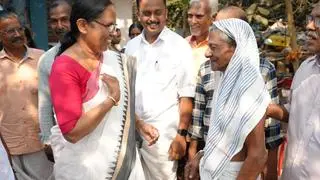The government will notify the three new criminal laws by January 26, even as dry runs for technology integration and training of stakeholders continue to ensure the justice delivery mechanism is not error-prone, said a top Union Home Ministry source on Tuesday.
Chandigarh has been chosen as a model city to test the functioning of the entirely new infrastructure needed to launch the newly-enacted Bharatiya Nyaya Sanhita (BNS), Bharatiya Nagarik Suraksha Sanhita (BNSS) and Bharatiya Sakshya Adhiniyam (BSA). For integration of e-courts, e-jail and e-forensics and Crime and Criminal Tracking Network and Systems (CCTNs), crime-related data has to be fed into the system, the top MHA source explained.
Trials are taking place in which National Forensic Sciences University is also involved to identify glitches and rectify them, so that the complete infrastructure is up and running. The trials would be complete before the end of the next month.
Notifications have also to be issued at the level of States, districts and police stations to complete the multi-tier upgradation of infrastructure that will be needed to bind the different arms of judicial system — police, prosecution, forensics, courts, and jails — for discharging justice, the source stated.
On December 25, President Draupadi Murmu gave her assent to the three new criminal code Bills, piloted in both Houses by Amit Shah, after Parliament passed them in the winter session that ended on December 21, to replace Indian Penal Code, Criminal Procedure Code and Indian Evidence Act.
Though much of the work has been done ever since when Amit Shah took over as Home Minister, other initiatives rolled out parallelly include a task force under the Bureau of Police Research and Development (BPR&D), which has been constituted to frame a policy about data storage through clouds that would be needed by the States and and Central agencies for executing the new criminal laws.
Three module-based training of lawyers and police personnel for making them accustomed will start after January 26. They have been divided into four zones for the ease of imparting training, and 90 per cent of it would be over in one year. Some exception may be that far flung north-east districts or some other region in states may be left out due to politics, the sources observed.
Since the Bill lays restrictions on judiciary as well, their training is also expected to span over six months, he stated while pointing out that the courts are on board owing to wide consultations in the run up to drafting of the laws. National Judicial Academy for education and training will drive the empowerment effort, it’s learnt.
Amit Shah has spoken to all CMs except for that of Arunachal Pradesh and Kerala on executing the laws, including having a separate Director of Prosecution at district and State levels for better conviction rates. All of them are on board and the Minister will speak to both of the CMs on Tuesday, said a source.
The source also clarified that high-profile cases that have not reached finality in courts would also attract new provisions of the BNS, BNSS and BSA, which means that fugitives like underworld don Dawood Ibrahim, and economic offenders such as Nirav Modi run the risk of getting indicted invoking the section on trial in absentia. This would help the country to seek their extradition from countries they are hiding since of as now they exploit Indian judicial shortcoming by arguing abroad that what they are facing are mere charges made out by the investigative agencies, the source elaborated.
Union Home Secretary has written letters to Registrars of Supreme Court and High Courts for making necessary changes in the law courses being taught in colleges and universities across the country. This has been done since the judiciary has stakes besides Ministry of Education in regulating law course syllabus.
India-Myanmar Free Movement
The centre, said the source, is expected to scrap Free Movement Regime (FMR) along the Myanmar border and the entry would be through visas only to check illegal migration. The talks between the two nations on the FMR is in the conclusion stage. The fencing for the first 300 kilometres of Myanmar border with India would begin soon as the tender is likely to be released in a day or two. While, the entire fencing of the borer would be completed in 4.5 years, said the source.







Comments
Comments have to be in English, and in full sentences. They cannot be abusive or personal. Please abide by our community guidelines for posting your comments.
We have migrated to a new commenting platform. If you are already a registered user of TheHindu Businessline and logged in, you may continue to engage with our articles. If you do not have an account please register and login to post comments. Users can access their older comments by logging into their accounts on Vuukle.